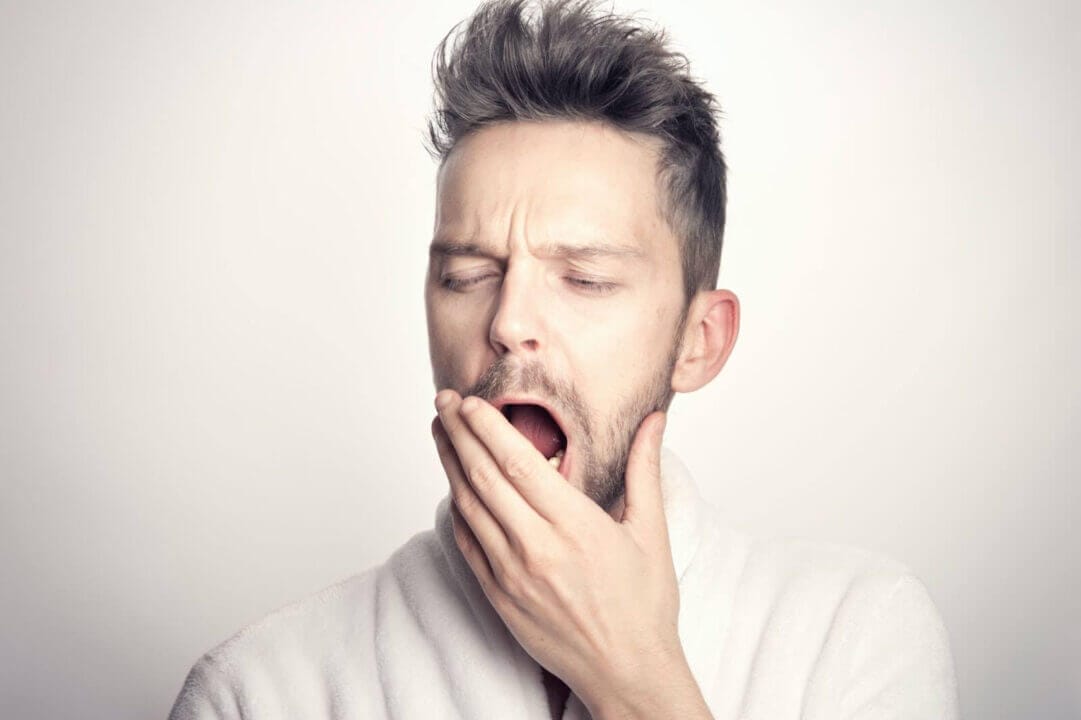The Reality of REM Rebound: Is This Sleep Disorder Keeping You Up at Night?
We all know the feeling of waking up after a night of restless sleep, feeling groggy and fatigued. Sleep disorders can greatly impact our quality of life, and one such disorder that often goes unnoticed is REM rebound.
Understanding what REM rebound is and its effects on our sleep patterns is crucial in finding ways to mitigate its impact.
In this article, we will delve into the science behind REM rebound, and its connection to sleep disorders, identifying its symptoms, and exploring the causes and treatment options available.
Understanding REM Rebound
REM rebound is a phenomenon that occurs when there is a significant increase in the proportion and intensity of rapid eye movement (REM) sleep following a period of sleep deprivation or the use of certain medications. This rebound effect is a compensatory response from our bodies, attempting to make up for the lack of REM sleep it has experienced.
Defining REM Rebound
REM rebound can be defined as an increased occurrence of REM sleep, which is characterized by rapid eye movement, vivid dreaming, and heightened brain activity. This phenomenon typically occurs after a period of insufficient REM sleep due to factors such as sleep deprivation or the use of certain substances.

The Science Behind REM Rebound
Several theories attempt to explain the occurrence of REM rebound. One theory suggests that REM rebound is a result of the body’s attempt to restore balance in the sleep-wake cycle and consolidate memories. When deprived of adequate REM sleep, the brain compensates by increasing the duration and intensity of subsequent REM sleep cycles.
Another theory proposes that REM rebound is linked to the regulation of brain chemicals, specifically serotonin and norepinephrine. These neurotransmitters play a vital role in regulating sleep and wakefulness. Disruptions in these chemicals can lead to changes in sleep patterns and the occurrence of REM rebound.
Additionally, research has shown that REM rebound may also be influenced by the circadian rhythm, the internal biological clock that regulates various physiological processes, including sleep. The circadian rhythm works in conjunction with the homeostatic sleep drive, which is the body’s natural tendency to regulate sleep-wake cycles based on the amount of sleep accumulated over time.
During periods of sleep deprivation, the homeostatic sleep drive builds up, increasing the pressure for REM sleep. As a result, when the opportunity for sleep arises, the body prioritizes REM sleep to compensate for the previous lack of it. This prioritization is believed to be a protective mechanism that ensures the brain’s essential functions related to memory consolidation and emotional processing are not compromised.
Furthermore, studies have shown that certain factors can influence the magnitude of REM rebound. For example, the duration and severity of sleep deprivation play a role in determining the extent of the rebound effect. Longer periods of sleep deprivation or more severe sleep deficits are associated with more pronounced REM rebound.
Additionally, the use of certain medications can also trigger REM rebound. Some antidepressants and other psychiatric medications, such as selective serotonin reuptake inhibitors (SSRIs), have been found to increase REM sleep and potentially contribute to REM rebound when discontinued.
Understanding REM rebound is not only important for individuals experiencing sleep deprivation or using medications that affect REM sleep, but it also sheds light on the significance of REM sleep itself. REM sleep is a crucial stage of the sleep cycle, involved in various cognitive processes, including memory consolidation, emotional regulation, and learning.
REM rebound is a fascinating phenomenon that highlights the body’s remarkable ability to compensate for the lack of REM sleep. The science behind REM rebound involves the regulation of sleep-wake cycles, brain chemicals, the circadian rhythm, and the homeostatic sleep drive. By understanding REM rebound, we gain insights into the importance of REM sleep and its impact on our overall well-being and cognitive functioning.
The Connection Between REM Rebound and Sleep Disorders
REM rebound has been observed to have a significant association with certain sleep disorders. Let’s take a closer look at how this phenomenon relates to insomnia and sleep apnea.
REM Rebound and Insomnia
Insomnia, characterized by difficulty falling asleep or staying asleep, can be aggravated by REM rebound. When individuals experience sleep deprivation caused by insomnia, their REM sleep is often reduced. However, once they can sleep more soundly, REM rebound can occur. This means that during subsequent sleep cycles, there is an increase in the occurrence and duration of REM sleep. This increase in REM sleep can lead to frequent and intense episodes of vivid dreaming, which can further disrupt sleep patterns and make it even more challenging for individuals with insomnia to achieve restful sleep.
Furthermore, the relationship between insomnia and REM rebound is a complex one. It is believed that heightened emotional arousal and increased brain activity during REM sleep may contribute to the development or exacerbation of anxiety and depression, which are commonly associated with insomnia. Therefore, the presence of REM rebound in individuals with insomnia not only disrupts their sleep but may also contribute to the overall emotional well-being and mental health of these individuals.

REM Rebound and Sleep Apnea
Sleep apnea, a sleep disorder characterized by the partial or complete cessation of breathing during sleep, can also contribute to REM rebound. The interruptions in breathing that occur in individuals with sleep apnea lead to sleep fragmentation and reduced overall REM sleep time. As a result, the body compensates for this lack of REM sleep by increasing the occurrence of REM sleep during subsequent sleep cycles.
Interestingly, the relationship between sleep apnea and REM rebound is not fully understood. Some studies suggest that the increase in REM sleep following sleep apnea episodes may be a protective mechanism of the body to restore the balance of sleep stages. However, it is important to note that the presence of REM rebound in individuals with sleep apnea does not necessarily indicate an improvement in their overall sleep quality. Sleep apnea is a chronic condition that requires proper diagnosis and treatment to effectively manage the interruptions in breathing and improve the overall quality of sleep.
REM rebound is a phenomenon that can have a significant impact on individuals with sleep disorders such as insomnia and sleep apnea. Understanding the relationship between REM rebound and these sleep disorders can provide valuable insights into the complex nature of sleep and the importance of achieving a healthy balance of sleep stages for optimal well-being.
Identifying Symptoms of REM Rebound
Recognizing the symptoms of REM rebound is essential in understanding its impact on your sleep and overall well-being.
REM rebound is a phenomenon that occurs when there is a significant increase in the amount of rapid eye movement (REM) sleep after a period of sleep deprivation or disruption. This rebound effect is the body’s way of compensating for the lost REM sleep, which is crucial for various physiological and cognitive functions.
When experiencing REM rebound, you may notice a range of physical symptoms that can significantly affect your daily life. Excessive daytime sleepiness is a common manifestation, leaving you feeling constantly tired and struggling to stay awake during the day. Fatigue, both physical and mental, can also be prevalent, making even simple tasks feel exhausting.
In addition to the physical symptoms, REM rebound can also have an impact on your emotional and mental well-being. Irritability becomes a frequent companion, as the lack of quality REM sleep can disrupt your mood regulation. Mood swings may become more pronounced, leading to sudden shifts in emotions that can be confusing and frustrating.
Anxiety is another emotional symptom that can arise during REM rebound. The intense dreams that occur during this phase can be vivid and emotionally charged, leaving you feeling on edge even after waking up. These dreams may involve scenarios that evoke fear, stress, or a general sense of unease, contributing to heightened anxiety levels.
Furthermore, difficulty concentrating is a common cognitive symptom experienced during REM rebound. The intense dreaming and disrupted sleep patterns can impair your ability to focus and retain information. This can be particularly challenging when trying to perform tasks that require mental clarity and attention to detail.
It is important to note that the symptoms of REM rebound can vary in intensity and duration depending on individual factors such as sleep debt, overall health, and stress levels. However, if you have been experiencing disrupted sleep patterns and notice the aforementioned symptoms, it may be worth considering the possibility of REM rebound and seeking appropriate strategies to improve your sleep quality.
Causes of REM Rebound
Several factors can contribute to an increased likelihood of experiencing REM rebound. Let’s explore these causes in more detail.
Substance Withdrawal and REM Rebound
When individuals withdraw from substances that affect the sleep-wake cycle, such as alcohol or sedatives, their bodies may go through an adjustment period. During this period, withdrawal symptoms, such as insomnia or fragmented sleep, can lead to a rebound effect and an increase in REM sleep.
Alcohol, for example, is a central nervous system depressant that can suppress REM sleep. When someone who regularly consumes alcohol suddenly stops, their body experiences a rebound effect. The brain, no longer under the influence of alcohol, tries to compensate for the previously suppressed REM sleep by increasing the duration and intensity of REM sleep during the rebound period.
Sedatives, like benzodiazepines, also have a similar effect on REM sleep. These medications are commonly prescribed to treat anxiety and insomnia. However, when someone stops taking sedatives abruptly, their body may react by experiencing REM rebound. The sudden discontinuation of sedatives can disrupt the sleep-wake cycle, leading to increased REM sleep as the body tries to restore balance.
Impact of Sleep Deprivation on REM Rebound
Extended periods of sleep deprivation, whether due to work, lifestyle factors, or medical conditions, can trigger REM rebound. When our bodies are deprived of proper sleep, the brain compensates by prioritizing REM sleep to restore its balance.
Sleep deprivation can occur for various reasons. Some individuals may voluntarily stay awake for extended periods, either due to work demands or personal choices. Others may experience sleep deprivation as a result of medical conditions such as insomnia, sleep apnea, or restless leg syndrome.
During periods of sleep deprivation, the brain’s need for REM sleep increases. REM sleep is essential for cognitive functioning, memory consolidation, and emotional regulation. When we don’t get enough sleep, our brain tries to make up for the lost REM sleep by increasing its duration and intensity during subsequent sleep cycles.
Furthermore, sleep deprivation can disrupt the balance between REM sleep and non-REM sleep. Non-REM sleep consists of several stages, including deep sleep (slow-wave sleep) and lighter stages of sleep. When sleep deprivation occurs, the body may prioritize REM sleep over non-REM sleep during the rebound period, resulting in an increased proportion of REM sleep.
Substance withdrawal and sleep deprivation are two significant causes of REM rebound. Understanding these causes can help individuals recognize and manage their sleep patterns effectively, promoting overall well-being and optimal sleep quality.
Treatment Options for REM Rebound
Though REM rebound itself does not require specific treatment, addressing the underlying sleep disorder or cause is crucial in managing its impact. Let’s explore the different treatment options available.
Medical Treatments
In cases where REM rebound is associated with a specific sleep disorder such as insomnia or sleep apnea, medical treatments may be required. This can include prescribed medications, continuous positive airway pressure (CPAP) machines, or other interventions based on individual needs.

Lifestyle Changes and Home Remedies
Implementing lifestyle changes and home remedies can also help alleviate the symptoms of REM rebound. Practicing good sleep hygiene, such as maintaining a consistent sleep schedule, creating a comfortable sleep environment, and reducing stimulant intake, can contribute to better sleep quality and lessen the impact of REM rebound.
It is important to note that consulting with a healthcare professional is essential when considering treatment options for REM rebound. They can provide personalized guidance based on individual circumstances and help determine the most appropriate course of action.
In Conclusion
Understanding the reality of REM rebound is key to addressing its impact on our sleep patterns and overall well-being. By recognizing the symptoms, exploring the underlying causes, and considering the available treatment options, individuals can take proactive steps toward mitigating the effects of REM rebound. Prioritizing sleep health regardless of whether the issue is snoring or some other sleep disorder, such as REM rebound, and seeking professional guidance can contribute to achieving restful nights and a better overall quality of life.








